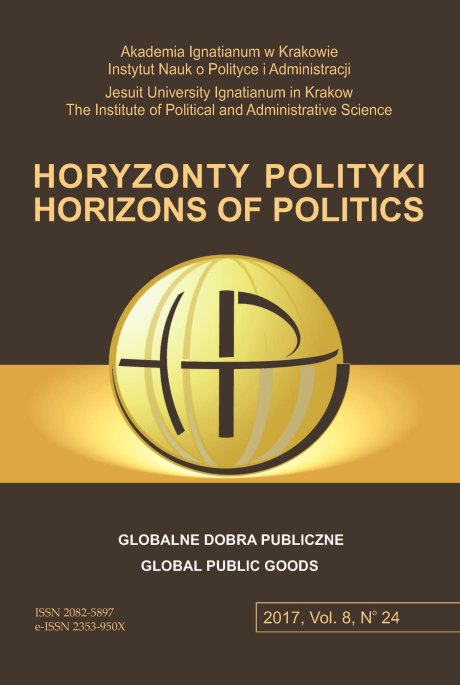Rola UNESCO w ochronie dziedzictwa kulturowego w konfliktach zbrojnych
The role of UNESCO in the protection of cultural heritage in armed conflicts
Author(s): Dobrosława Wiktor-MachSubject(s): Museology & Heritage Studies, Government/Political systems, Security and defense, Military policy, Cultural Anthropology / Ethnology
Published by: Uniwersytet Ignatianum w Krakowie
Keywords: cultural heritage; armed conflicts; UNESCO; global public goods;
Summary/Abstract: RESEARCH OBJECTIVE: Providing an answer to the question what is the role of the United Nations Educational, Scientific and Cultural Organization (UNESCO) in the protection of world heritage as a global good in the context of armed conflicts. THE RESEARCH PROBLEM AND METHODS: The main problem refers to the possibility and scale of international cooperation in the protection of cultural heritage. The paper analyses the evolution of UNESCO’s approach and activities in the case of wars and armed conflicts since the inception of the organization till 2015 and the determinants of the change. To answer the research questions, a critical analysis of UNESCO’s documents and scientific literature related to the topic was conducted. THE PROCESS OF ARGUMENTATION: The paper consists of four parts. At the beginning, an analysis of cultural heritage from the perspective of global public goods theory is presented. Then follows a presentation of history of UNESCO’s activities and the evolution of its approach towards culture in the event of conflicts. The third part discusses the challenges for the protection of heritage in the 21st century. The fourth part presents the 2015 UNESCO’s strategy as an endeavor to enhance the protection of culture. RESEARCH RESULTS: In the light of new challenges for the protection of heritage as a global good, such as an increase in the number of endangered world heritage objects, frequent involvement of non‑state actors in wars, unique features of contemporary conflicts, the system created by UNESCO requires reforms. Although UNESCO is not capable of ensuring full protection to cultural heritage, it nevertheless seeks ways to enhance international cooperation and to engage relevant stakeholders in its activities. Heritage is increasingly viewed as a tool in peace‑building processes, strengthening sustainable development and countering terrorist propaganda. CONCLUSIONS, INNOVATIONS AND RECOMMENDATONS: The effectiveness of UNESCO during armed conflicts is limited. It cannot prevent the looting of cultural heritage nor protect cultural diversity in areas affected by an armed conflict. In spite of that, current challenges make states aware that international cooperation in this field is a must, what in turn strengthens the role of UNESCO as a leader in the protection of world heritage.
Journal: Horyzonty Polityki
- Issue Year: 8/2017
- Issue No: 24
- Page Range: 29-51
- Page Count: 23
- Language: Polish

